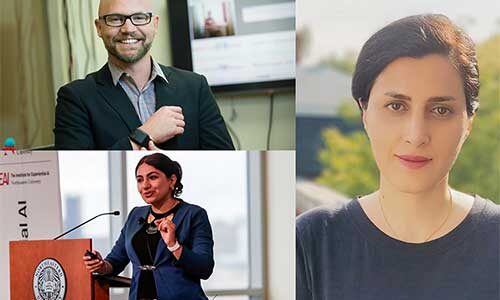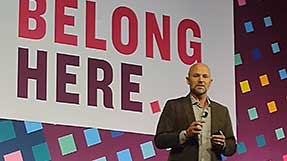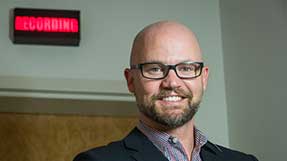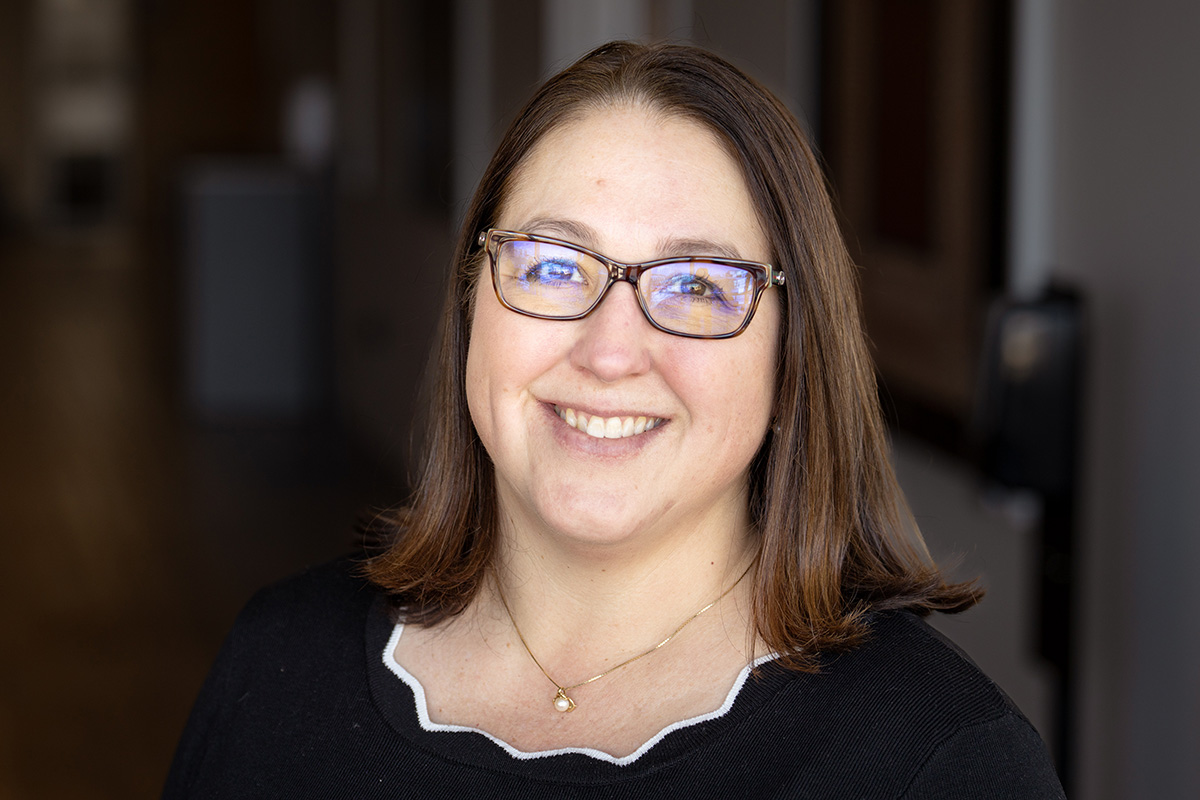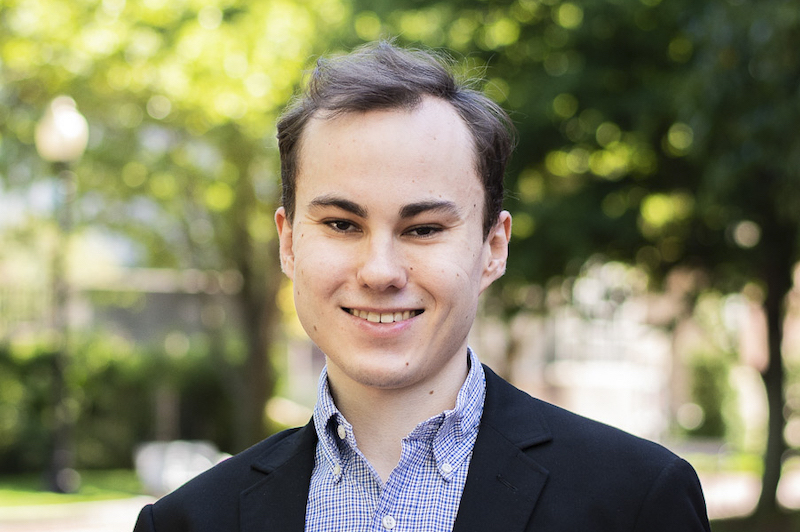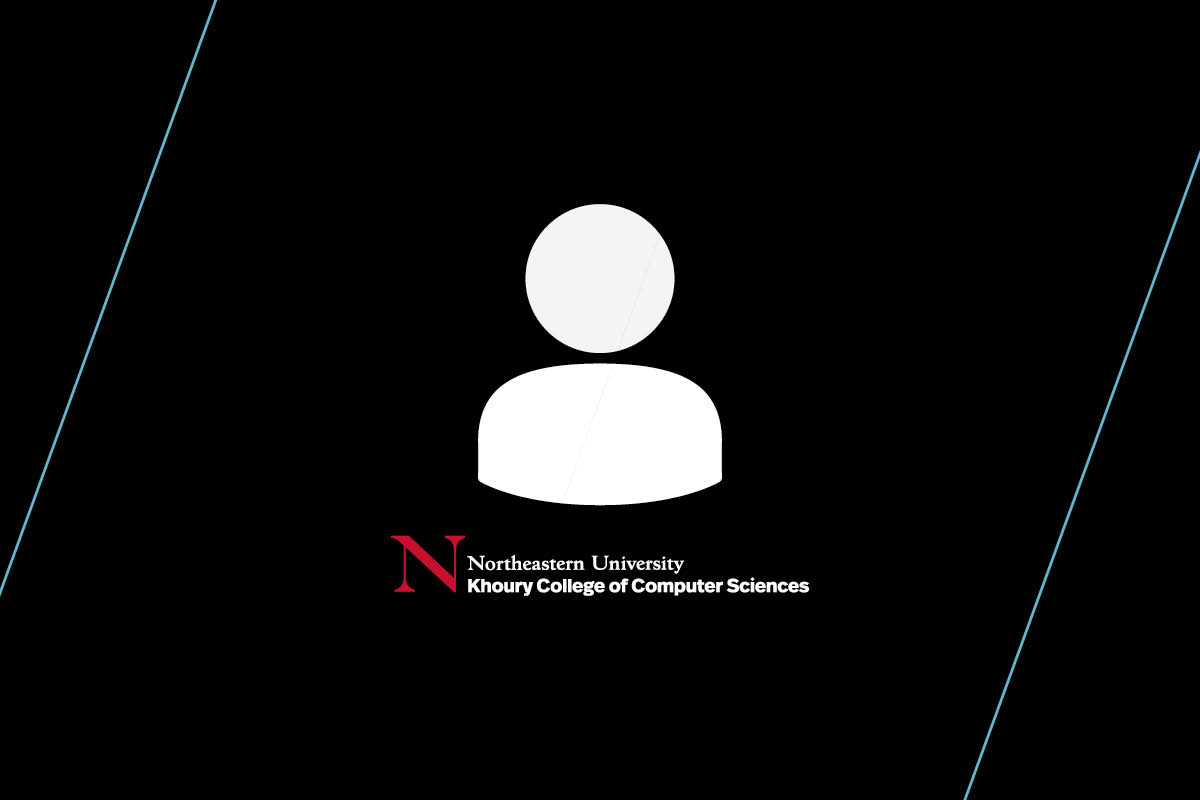Matthew Goodwin
(he/him/his)
Professor, Interdisciplinary with Bouvé College of Health Sciences
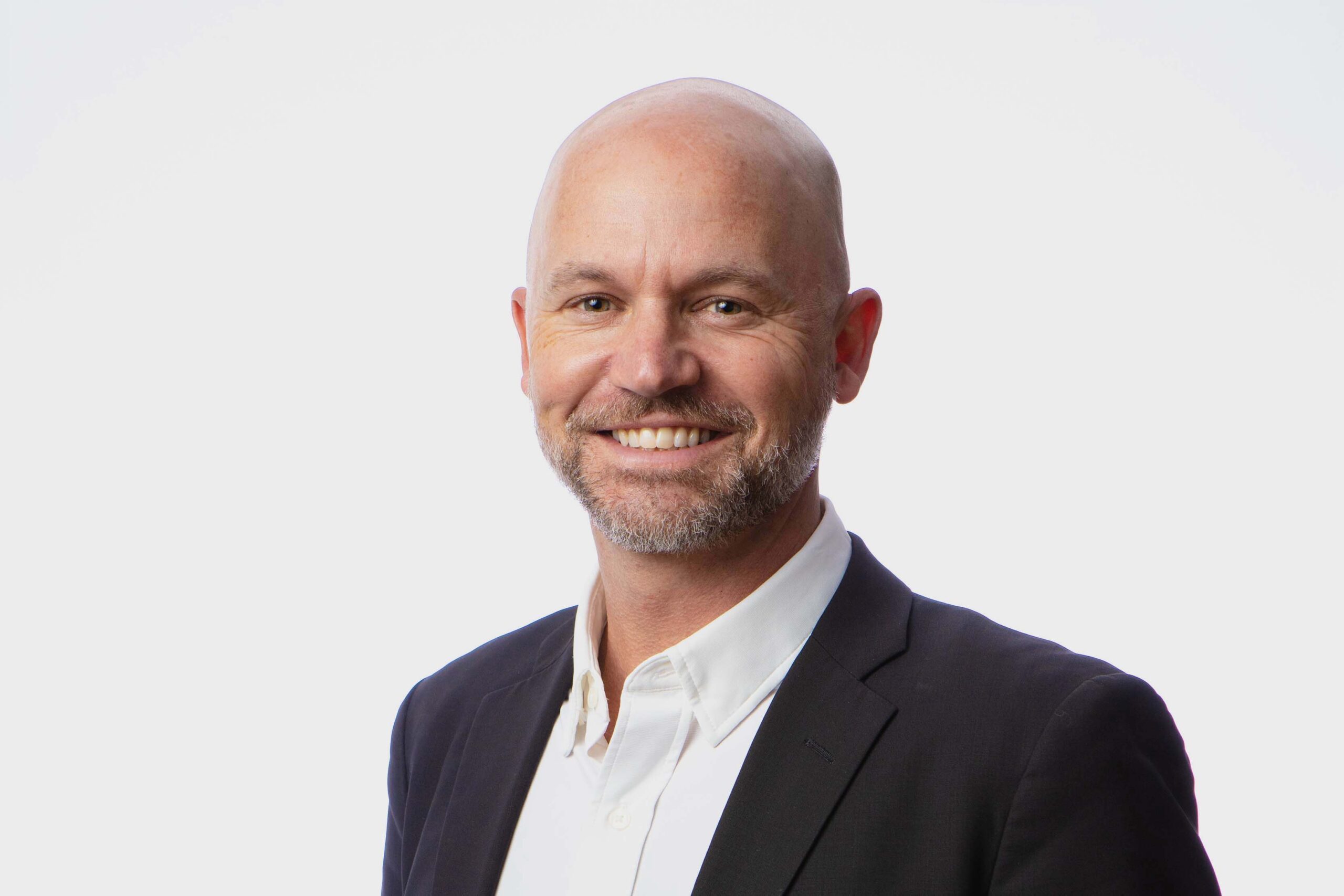
Research interests
- Ambulatory psychophysiology
- Autism spectrum disorder
- Digital signal processing
- Machine learning
- Personal health informatics
Education
- Postdoctorate in Affective Computing, Massachusetts Institute of Technology
- PhD in Behavioral Science, University of Rhode Island
- MA in Experimental Psychology, University of Rhode Island
- BA in Psychology, Wheaton College
Biography
Matthew S. Goodwin is a professor in the Khoury College of Computer Sciences and the Bouvé College of Health Sciences at Northeastern University, based in Boston.
For more than 25 years, Goodwin has worked with children and adults on the autism spectrum to innovate, develop, and evaluate behavioral assessment and intervention technologies, including video and audio capture, telemetric physiological monitors, accelerometry sensors, and digital video/facial recognition systems. In doing so, he aims to enable the caregivers of people with autism to more capably and compassionately assist their loved ones, including by detecting signs of aggression before meltdowns occur.
The prolific and interdisciplinary nature of Goodwin’s research has made him a fixture of several Northeastern research circles. He co-founded a doctoral program in personal health informatics, directs the Computational Behavioral Science Lab, chairs the Bouvé Research Committee, and is a core faculty member of both the Institute for Experiential AI and the Institute for Experiential Robotics.
Goodwin previously held research or teaching roles at Harvard Medical School, Brown University, and the MIT Media Lab. He has served as a board member for Autism Speaks and the International Society for Autism Research, and as a faculty member of the Office of Behavioral and Social Science Research within the National Institutes of Health (NIH). Goodwin’s honors include the Matilda White Riley Early-Stage Investigator award from the NIH, the Simons Investigator honor from the Simons Foundation for Autism Initiative, and the Hariri Award for Transformative Computational Science.
Labs and groups
Projects
Recent publications
-
Building an Open-Source Community to Enhance Autonomic Nervous System Signal Analysis: DBDP-Autonomic
Citation: Jessilyn Dunn, Varun Mishra , Md. Mobashir Hasan Shandhi, Hayoung Jeong, Natasha Yamane, Yuna Watanabe, Bill Chen, Matthew S. Goodwin. (2024). Building an Open-Source Community to Enhance Autonomic Nervous System Signal Analysis: DBDP-Autonomic CoRR, abs/2403.17165. https://doi.org/10.48550/arXiv.2403.17165 -
Wearable biosensing to predict imminent aggressive behaviors in psychiatric inpatient youths with autism
Citation: Imbiriba, T, Demirkaya, A, Singh, A, Erdogmus, D, Goodwin, MS (2023). Wearable biosensing to predict imminent aggressive behaviors in psychiatric inpatient youths with autism. JAMA Network Open, 6(12):e2348898. -
Multiple Toddler Tracking in Indoor Videos
Citation: Somaieh Amraee, Bishoy Galoaa, Matthew S. Goodwin, Elaheh Hatamimajoumerd, Sarah Ostadabbas. (2023). Multiple Toddler Tracking in Indoor Videos CoRR, abs/2311.17656. https://doi.org/10.48550/arXiv.2311.17656 -
A user-based information rating scale to evaluate the design of technology-based supports for autism
Citation: Vanessa Zervogianni, Sue Fletcher-Watson, Gerardo Herrera, Matthew S. Goodwin, Elise Triquell, Patricia Pérez-Fuster, Mark J. Brosnan, Ouriel Grynszpan. (2024). A user-based information rating scale to evaluate the design of technology-based supports for autism Univers. Access Inf. Soc., 23, 1739-1749. https://doi.org/10.1007/s10209-023-00995-y -
A Video-based End-to-end Pipeline for Non-nutritive Sucking Action Recognition and Segmentation in Young Infants
Citation: Shaotong Zhu, Michael Wan, Elaheh Hatamimajoumerd, Kashish Jain, Samuel Zlota, Cholpady Vikram Kamath, Cassandra B. Rowan, Emma C. Grace, Matthew S. Goodwin, Marie J. Hayes, Rebecca A. Schwartz-Mette, Emily Zimmerman, Sarah Ostadabbas. (2023). A Video-based End-to-end Pipeline for Non-nutritive Sucking Action Recognition and Segmentation in Young Infants CoRR, abs/2303.16867. https://doi.org/10.48550/arXiv.2303.16867 -
Real-time Public Speaking Anxiety Prediction Model for Oral Presentations
Citation: Everlyne Kimani, Timothy W. Bickmore, Rosalind W. Picard, Matthew S. Goodwin, Holly Jimison. (2022). Real-time Public Speaking Anxiety Prediction Model for Oral Presentations ICMI Companion, 30-35. https://doi.org/10.1145/3536220.3563686 -
Automated Pain Assessment in Children Using Electrodermal Activity and Video Data Fusion via Machine Learning
Citation: Busra T. Susam, Nathan T. Riek, Murat Akçakaya, Xiaojing Xu, Virginia R. de Sa, Hooman Nezamfar, Damaris Diaz, Kenneth D. Craig, Matthew S. Goodwin, Jeannie S. Huang. (2022). Automated Pain Assessment in Children Using Electrodermal Activity and Video Data Fusion via Machine Learning IEEE Trans. Biomed. Eng., 69, 422-431. https://doi.org/10.1109/TBME.2021.3096137 -
Biosensor prediction of aggression in youth with autism using kernel-based methods
Citation: Tales Imbiriba, Diana Catalina Cumpanasoiu, James Heathers, Stratis Ioannidis, Deniz Erdogmus, Matthew S. Goodwin. (2020). Biosensor prediction of aggression in youth with autism using kernel-based methods PETRA, 13:1-13:6. https://doi.org/10.1145/3389189.3389199 -
Applications of sparse recovery and dictionary learning to enhance analysis of ambulatory electrodermal activity data
Citation: Malia Kelsey, Murat Akçakaya, Ian R. Kleckner, Richard Vincent Palumbo, Lisa Feldman Barrett, Karen S. Quigley, Matthew S. Goodwin. (2018). Applications of sparse recovery and dictionary learning to enhance analysis of ambulatory electrodermal activity data Biomed. Signal Process. Control., 40, 58-70. https://doi.org/10.1016/j.bspc.2017.08.024 -
Automated Assessment of Children’s Postoperative Pain Using Computer Vision
Citation: Sikka, K., Ahmed, A. A., Diaz, D., Goodwin, M. S., Craig, K. D., Bartlett, M. S., & Huang, J. S. (2015). Automated Assessment of Children’s Postoperative Pain Using Computer Vision. Pediatrics, peds-2015. -
A non-homogeneous poisson process model of Skin Conductance Responses integrated with observed regulatory behaviors for Autism intervention
Citation: Chaspari, T., Goodwin, M., Wilder-Smith, O., Gulsrud, A., Mucchetti, C., Kasari, C., & Narayanan, S. (2014, May). A non-homogeneous Poisson process model of skin conductance responses integrated with observed regulatory behaviors for Autism intervention. In Acoustics, Speech and Signal Processing (ICASSP), 2014 IEEE International Conference on (pp. 1611-1615). IEEE. -
iCalm: Wearable Sensor and Network Architecture for Wirelessly Communicating and Logging Autonomic Activity
Citation: Fletcher R.R., Dobson K., Goodwin M.S., Eydgahi H., Wilder-Smith O., Fernholz D., Kuboyama Y., Hedman E., Poh M.-Z., Picard R.W. iCalm: wearable sensor and network architecture for wirelessly communicating and logging autonomic activity — IEEE Transactions on Information Technology in Biomedicine, 2010 14(2): 215‐223.
